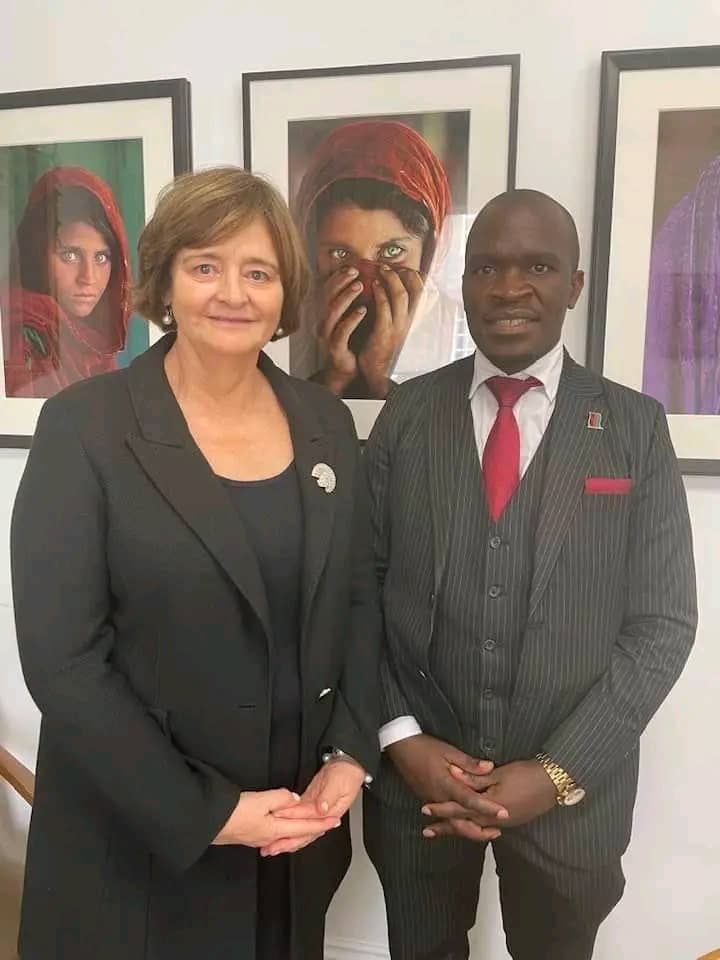Columns
Attorney General Thabo Nyirenda’s role in the mining development agreement controversy

By Burnett Munthali
The controversy surrounding Attorney General Thabo Nyirenda’s involvement in the procurement of legal services for a Mining Development Agreement (MDA) with Mkango Resources Limited has raised serious concerns about transparency and accountability in Malawi’s government. This case highlights several key issues, including potential abuse of office, the opaque handling of public funds, and the risk of undermining public trust in the country’s legal and political systems.
The heart of the controversy lies in the $180,000 paid by Mkango Resources Limited for a legal opinion on the MDA, out of which $80,000 remains unaccounted for. The Attorney General’s role in unilaterally selecting the law firm, bypassing Malawi’s internal procurement systems, raises red flags. The fact that this process did not involve the Solicitor General or the Ministry of Justice’s Internal Procurement Committee adds to the perception of irregularity.

Despite Nyirenda’s defense that the procurement was legal, his inability to account for the missing $80,000 and the subsequent finger-pointing between government officials and private entities reflects poorly on Malawi’s governance structures. The absence of clear documentation tracking the flow of money fuels suspicions of corruption and potential abuse of office.
One of the major criticisms of this case is the inherent conflict of interest in allowing Mkango Resources, the company seeking a concession, to fund the legal review of its own contract with the government. Mining governance experts have raised concerns that such an arrangement compromises the impartiality and credibility of the legal advice. By entrusting a foreign firm to conduct the review, Malawi risks allowing corporate interests to influence decisions that should prioritize national benefit.
Furthermore, the Attorney General’s outsized role in negotiating legal fees and overseeing the process without the knowledge of key government officials, including the Solicitor General, has led to speculation about the possible motives behind these actions. The involvement of a foreign law firm, Omnia Strategy, co-chaired by Cherie Blair, adds another layer of complexity, potentially indicating undue influence or favoritism.
The lack of transparency in this case not only damages the reputation of the Attorney General but also highlights weaknesses in Malawi’s governance. With the Solicitor General and other senior officials claiming ignorance of the Attorney General’s actions, it becomes clear that proper oversight mechanisms are either lacking or being circumvented. This undermines public trust in government processes, especially in an area as sensitive as mining, where the potential for economic growth is closely tied to proper regulation and oversight.
Malawi is struggling to diversify its economy, and mining is seen as a key avenue for growth. However, when government officials act unilaterally in negotiations over valuable national resources, it risks not only the integrity of the agreements being signed but also the future benefits for the Malawian people.
The scandal surrounding the Attorney General’s actions may have broader legal and political consequences. There are already calls for a more thorough investigation into how the legal fees were handled and whether laws were broken in the process. The fact that $80,000 remains unaccounted for raises the possibility of legal action or disciplinary measures being taken against those involved.
Politically, this scandal could undermine the current administration’s efforts to present itself as committed to transparency and anti-corruption measures. If the Attorney General is found to have acted inappropriately, it could have ripple effects throughout the government, potentially leading to further scrutiny of other deals and contracts.
In conclusion, the handling of the legal review for the Mkango Resources MDA exposes significant gaps in Malawi’s governance and procurement processes. The allegations against Attorney General Thabo Nyirenda reflect poorly on the country’s ability to manage its natural resources effectively and transparently. As negotiations for the mining agreement continue, it is crucial that the government addresses these concerns head-on, ensuring that public funds are properly accounted for and that legal and ethical standards are upheld. Only by doing so can Malawi hope to restore public confidence and secure the benefits of its mineral wealth for the future.






